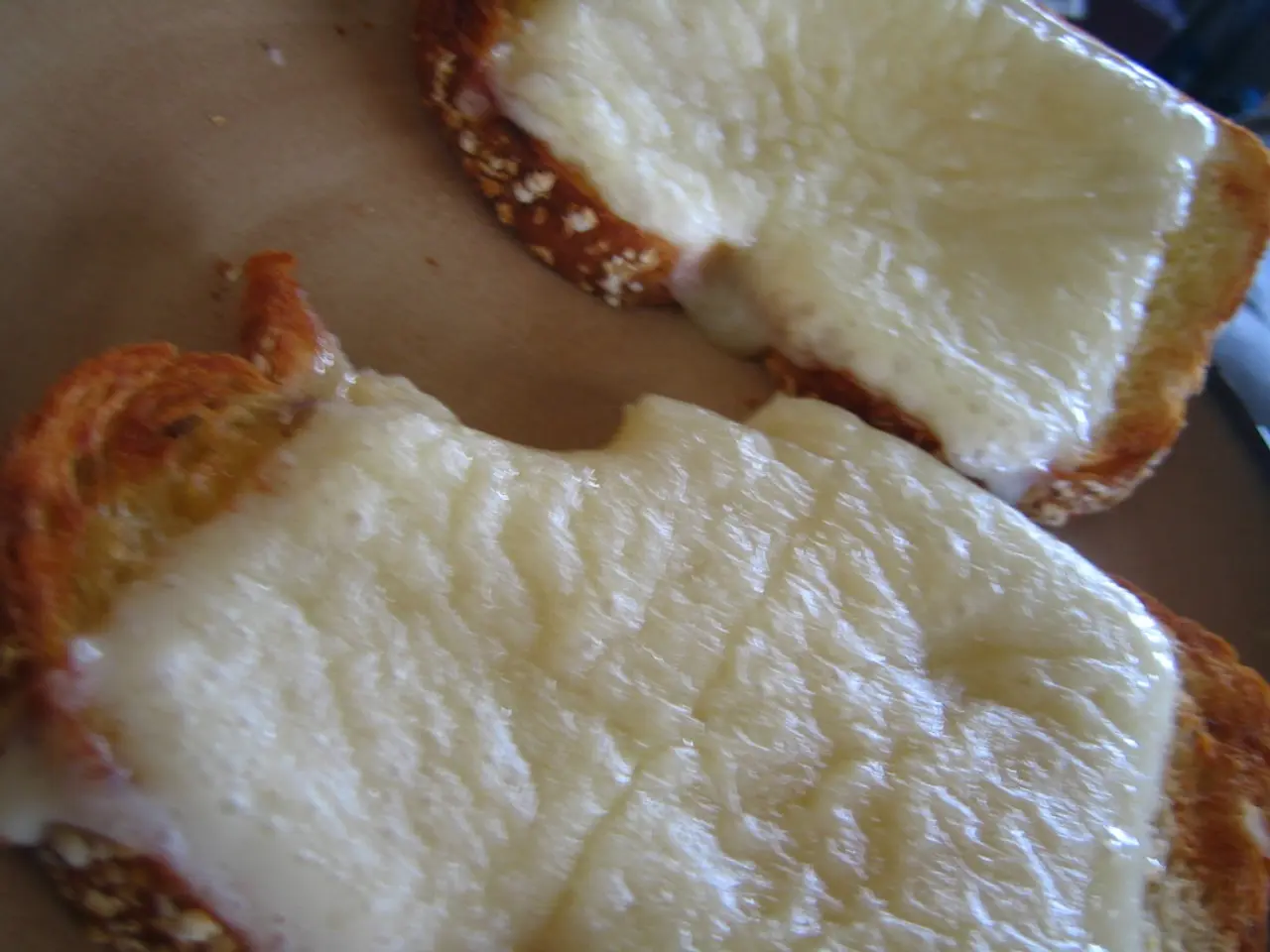Cleansing Eczema: Advantages, Methods, and Further Insights
Eczema, a common skin condition affecting 31.6 million people in the United States, can be managed with the right care and treatments. In this article, we'll explore the safest and most effective methods for exfoliating eczema-prone skin to help improve its appearance without causing further irritation.
Doctors can provide valuable advice and answer any concerns or queries regarding skin care, including exfoliation for eczema. However, anyone considering exfoliating eczema should weigh the potential benefits against the risks of irritating the skin and making eczema worse.
Exfoliating products work mechanically, using physical tools, or chemically, employing acids like glycolic acid or salicylic acid. Both methods can be used cautiously for eczema-prone skin, but specific considerations apply.
Gentle physical exfoliation can help remove buildup and improve texture without harsh irritation. Soft scrubs with mild, natural exfoliants like walnut shells or upcycled wood pulp, combined with moisturizing ingredients, are ideal. Products designed for sensitive skin that avoid harsh abrasives, fragrances, and irritants are preferred.
Chemical exfoliation with mild acids like alpha hydroxy acids (AHAs) and beta hydroxy acid (BHA) can safely remove dead, flaky skin, improve texture, and unclog pores. Salicylic acid, for instance, is known to help with scaling and thickening in certain eczema types like seborrheic dermatitis, but it must be used carefully due to potential irritation.
Exfoliation should be gentle and infrequent, starting with once or twice a week, especially for eczema skin which is often sensitive and inflamed. Leave-on formulations or scrubs that include hydrating and soothing ingredients help maintain moisture and reduce irritation risks.
Coarse scrubs or aggressive physical exfoliants can worsen eczema by damaging the skin barrier. Instead, use products formulated for sensitive skin and eczema, ideally patch-testing first.
Sugar-based scrubs can exfoliate gently while keeping the skin hydrated due to their natural humectant properties, which helps to improve dry patches common in eczema.
In summary, the safest and most effective methods for exfoliating eczema-prone skin are gentle physical exfoliants with moisturizing agents or low-concentration chemical exfoliants (like salicylic acid or AHAs), applied sparingly and with caution to avoid irritation while improving skin appearance.
The National Eczema Association (NEA) and the American Academy of Dermatology Association (AAD) also advise that exfoliating can help prevent flare-ups by removing dead skin cells, but it could also irritate the skin and make eczema worse. They recommend gentle, non-abrasive methods that minimize irritation and hydrate while removing dead skin.
When using prescription creams to treat eczema, it's important to check with a doctor before exfoliating the affected areas of skin. People with eczema tend to have dry, sensitive skin, making moisturizing particularly important after exfoliating eczema. Ways to find a good moisturizer for eczema include avoiding known triggers and allergens, avoiding irritating preservatives, looking for hypoallergenic products, and using products containing shea butter, aloe, hyaluronic acid, or humectants.
With careful consideration and the right products, exfoliating eczema-prone skin can be a beneficial part of a skincare routine, helping to improve its appearance and prevent flare-ups. For more information, consult a healthcare professional or refer to the NEA's Seal of Acceptance, which includes skin and hair care products, household cleaners, sunscreen, and clothing.
[1] National Eczema Association. (n.d.). Exfoliating. Retrieved from https://nationaleczema.org/eczema/skincare/exfoliating/
[2] American Academy of Dermatology Association. (n.d.). Exfoliation. Retrieved from https://www.aad.org/public/diseases/eczema/treatment/exfoliation
[3] National Eczema Association. (n.d.). Salicylic acid. Retrieved from https://nationaleczema.org/eczema/skincare/salicylic-acid/
[4] American Academy of Dermatology Association. (n.d.). Sugar scrubs. Retrieved from https://www.aad.org/public/diseases/eczema/treatment/moisturizers/sugar-scrubs
[5] National Eczema Association. (n.d.). Choosing the right moisturizer for eczema. Retrieved from https://nationaleczema.org/eczema/skincare/moisturizing/choosing-the-right-moisturizer-for-eczema/
- Since eczema can be sensitive to harsh abrasives and irritants, using products designed for sensitive skin that avoid such elements, like soft scrubs with natural exfoliants and moisturizing ingredients, is highly recommended.
- For effective and safe exfoliation of eczema-prone skin, one can consider gentle physical exfoliation or low-concentration chemical exfoliants like salicylic acid or alpha hydroxy acids, applied sparingly and with caution.
- Exfoliation can potentially help prevent flare-ups by removing dead skin cells, but it's essential to consult a healthcare professional or refer to organizations like the National Eczema Association (NEA) or the American Academy of Dermatology Association (AAD) for advice on the best practices for managing eczema through skincare.




